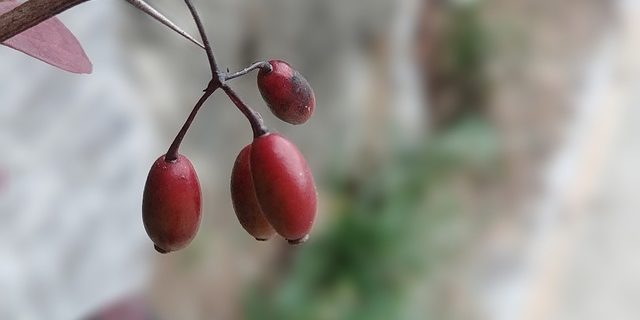Schisandra Berry — Wu wei zi
The fruit of the Schisandra (Schisandra chinensis) vine is one of my favorite adaptogenic herbs for the change of season from late summer into autumn. This transitional time can be hard on the lungs and immune system, and Schisandra is the perfect ally for the season.
Schisandra is known as “Five Flavor Berry” because when chewed it offers up all of the traditional tastes: Sour, Salty, Sweet, Bitter, and Pungent. It’s quite an experience, I recommend you try it! In Traditional Chinese Medicine, this anti-oxidant rich fruit is used primarily as an astringent for the digestive system and the lungs. It has been used to treat diarrhea, coughs and colds, and allergies. This astringent action, along with its warming effect, helps to protect the lungs from the cold dry air of autumn as well as the allergens present at this time of year, mostly ragweed pollen and mold spores.
Schisandra is an adaptogen, and as such it helps our bodies deal with stress. Certainly we could all use a little help there! It also supports the immune system, protects the liver, and helps to quiet the spirit. That sounds like exactly the tonic for starting a new school year, or heading into the busy holiday season.
Schisandra Berry Tea
1 Tablespoon dried berries
2 cups water
Add berries and water to a non-reactive pot, bring to a boil.
Reduce heat and simmer 20 minutes, covered
Strain and drink
You can add honey, if you like, and I like to add a slice or two of fresh Ginger root to the pot while it’s cooking, for flavor and the added digestive and anti-inflammatory benefits.
The cooked berries can be added to a smoothie to get the last drop of goodness out of them. I love mixed-berry smoothies, myself, and the Schisandra mixes well with Blueberries, Raspberries, and Blackberries. Yum!









Susan, your emails with suggestions are greatly appreciated. Love and a big hug to you and Nicole, Sarah Sczuka